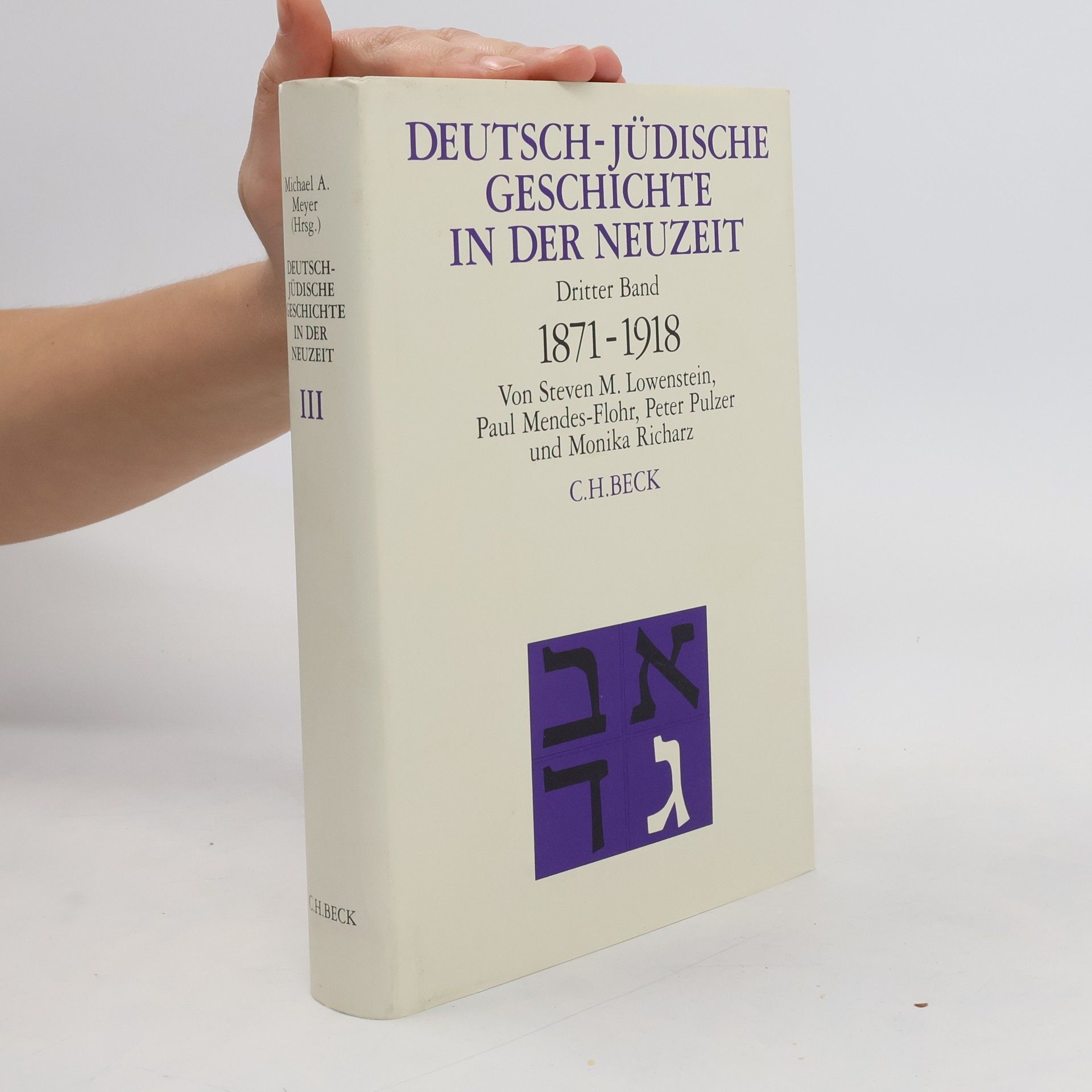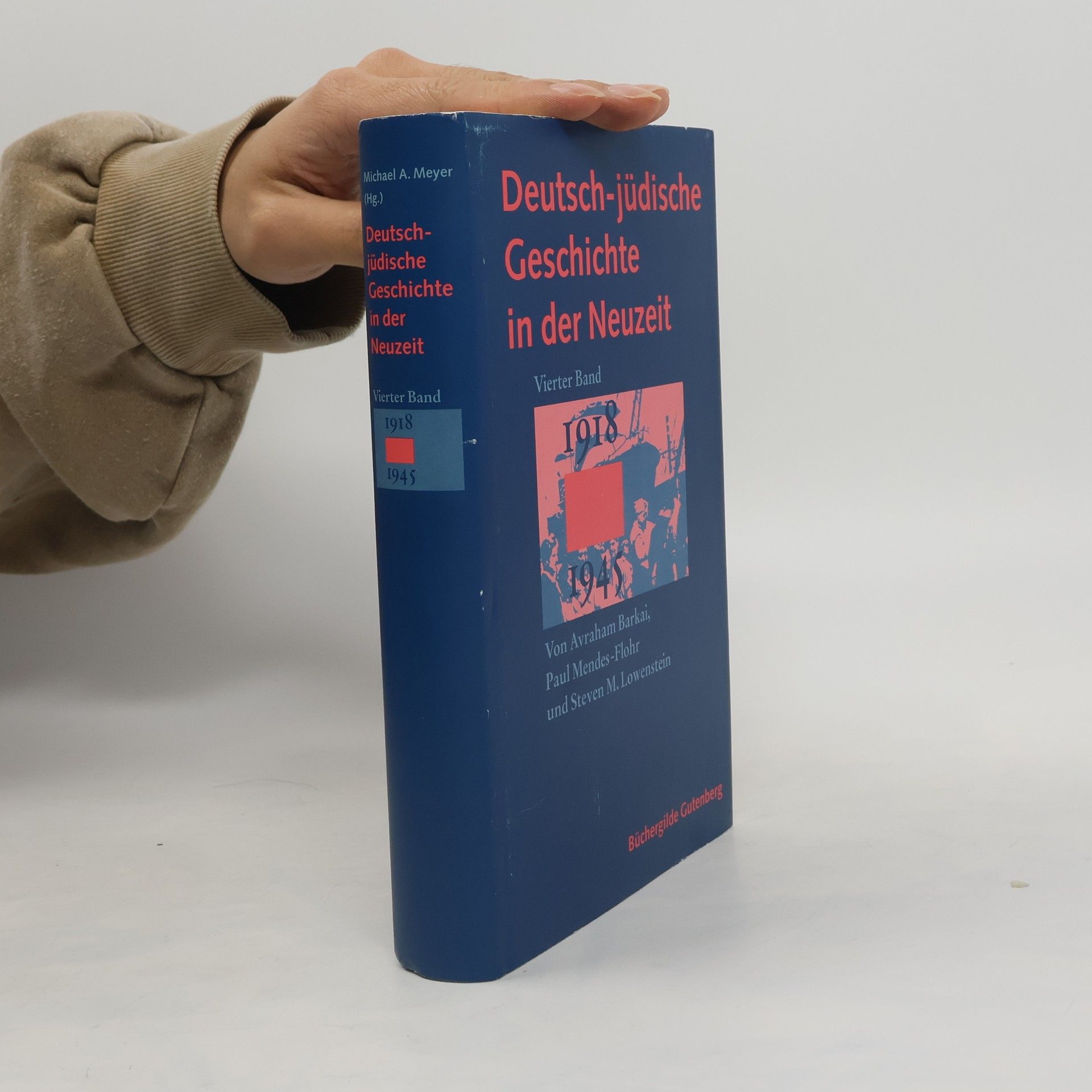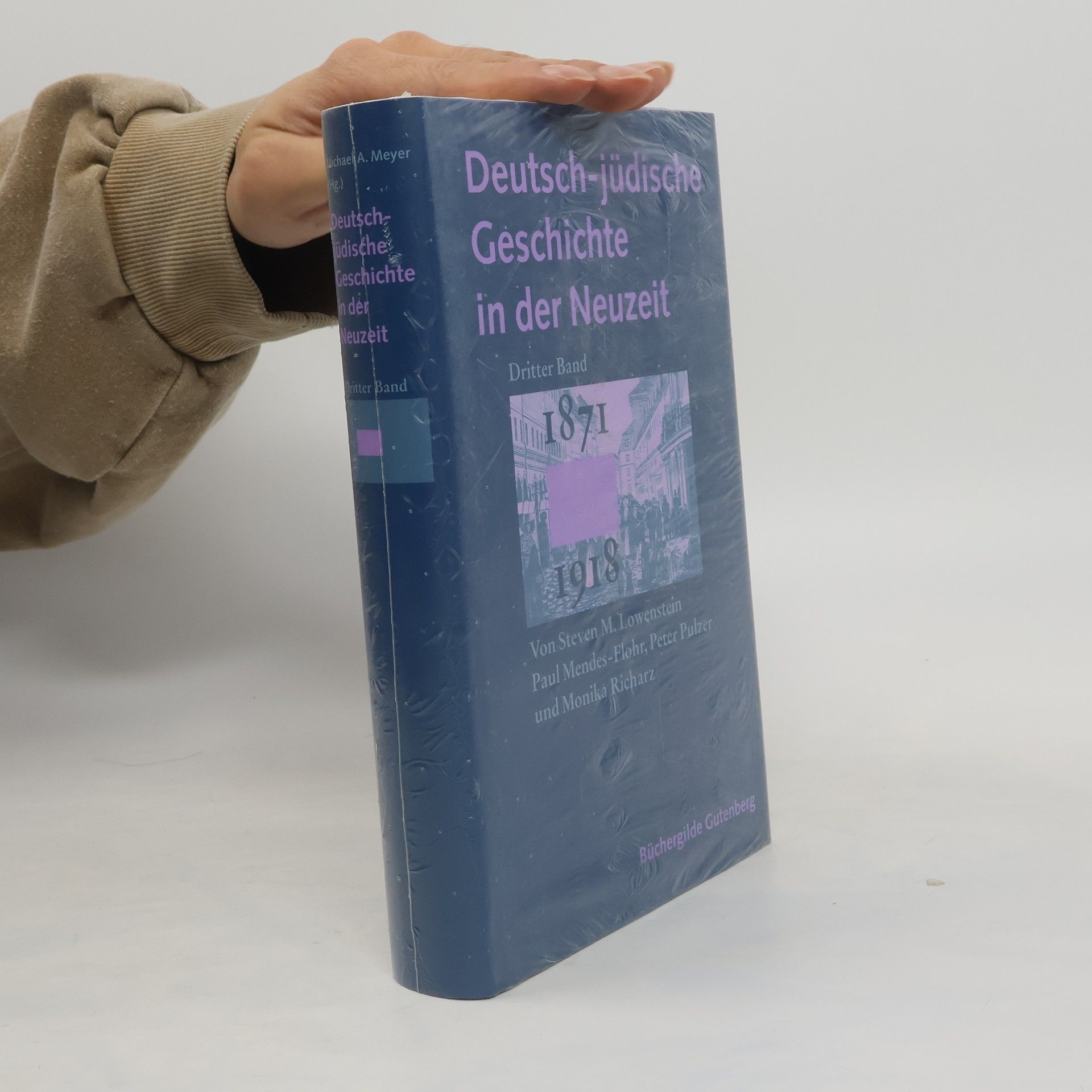Deutsch-jüdische Geschichte in der Neuzeit
Dritter Band
Steven Lowenstein is a distinguished scholar and writer whose work deeply explores the history and culture of Jewish communities across different eras and locations. His scholarship delves into the intricate fabric of Jewish life, examining traditions, family dynamics, and cultural evolution within these communities. Through meticulous research and insightful analysis, he illuminates the internal complexities and transformations that have shaped Jewish identity. Lowenstein's dedication to understanding and articulating the Jewish experience solidifies his significant contributions to the field of historical study.



Dritter Band
Dieser Band stellt den Zeitraum von der Reichsgründung 1871 bis zum Ende des Ersten Weltkrieges 1918 dar. Diese Zeit bringt den Juden die langersehnte Emanzipation, aber zugleich entsteht ein neuer, sich nunmehr auch in politischen Verbänden und Parteien formierender Antisemitismus. Eine vollständige Integration in die deutsche Gesellschaft, die am Anfang des Krieges noch möglich schien, gelingt nicht. Die Deutsch-jüdische Geschichte in der Neuzeit hat sich gleich bei ihrem Erscheinen den Ruf eines Standardwerks erworben. Die vier Bände werden jetzt in einer Sonderausgabe vorgelegt, die sie einem noch größeren Publikum zugänglich machen sollen. Das Werk setzt ein mit dem Beginn des 17. Jahrhunderts, stellt den Weg zur Emanzipation und Akkulturation dar, der doch nie zur vollständigen Integration in die deutsche Gesellschaft führt, und schließt mit der Ausgrenzung der Juden und ihrer systematischen Ermordung unter dem NS-Regime. Aber: "Trotz der erdrückenden Realität des Holocaust, die die hier erzählte Geschichte auf tragische Weise beendet hat", ist es nicht im Hinblick auf ihn angelegt. Die deutsch-jüdische Geschichte erscheint hier als " Bestandteil der Geschichte des jüdischen Volkes wie der der Deutschen" (M. A. Meyer), einer Geschichte freilich, in der am Ende alle Hoffnungen der Juden zunichte werden, ihr außerordentlicher Beitrag zur deutschen Kultur geleugnet wird.